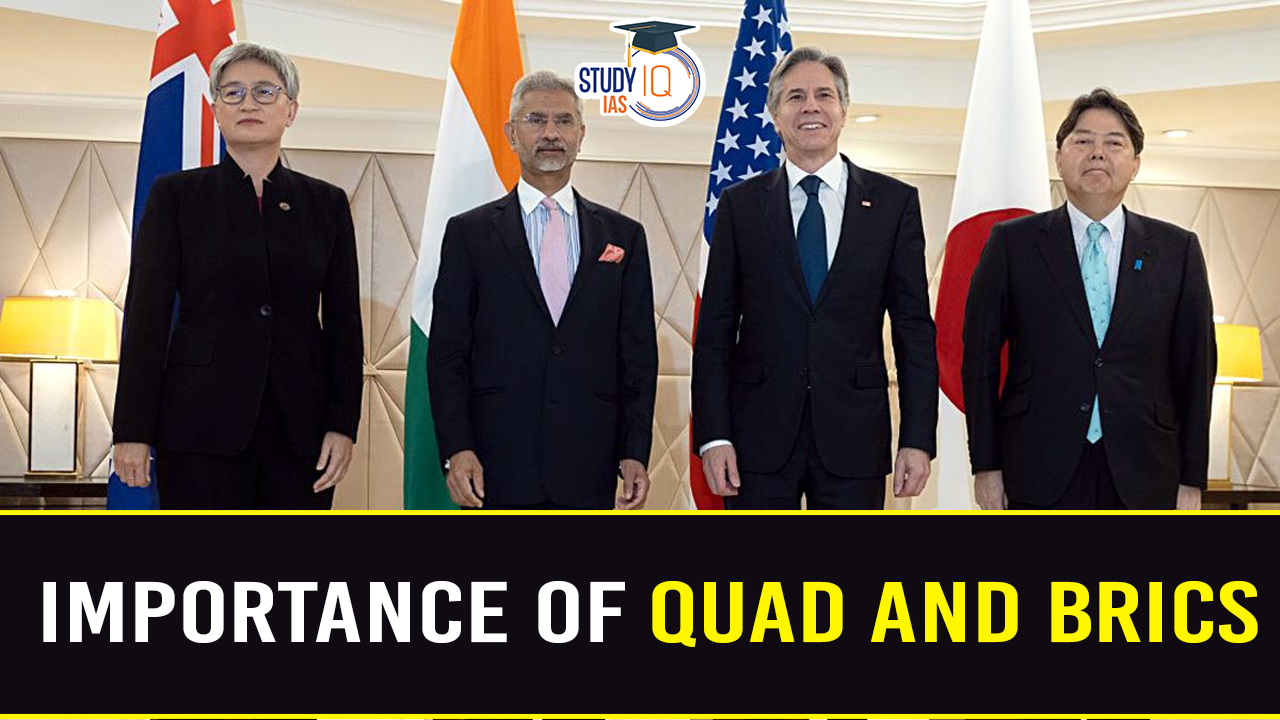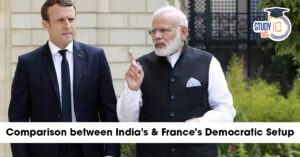Table of Contents
Context: Recently, the Quad Foreign Ministers’ Meeting was held in Japan.
More In News
The meeting occurs after a 10-month hiatus during a period marked by global tensions:
- Paralysis in the United Nations Security Council (UNSC) and stalled reforms.
- Violations of international law in Ukraine and Gaza.
- An emerging axis of Russia, China, North Korea, and Iran.
- Expanding Chinese influence globally.
India’s Strategic Engagements
- Quad: India supports the Quad enthusiastically, influenced by U.S. President Joe Biden’s strong endorsement since 2021.
- The Quad focuses on a broad redefinition of the Indo-Pacific’s security and techno-economic architecture, encompassing sectors like digital, telecom, health, power, and semiconductors.
- AUKUS: The formation of AUKUS by the U.S., Australia, and the U.K. emphasises military capabilities, including nuclear submarines for Australia, which aligns with securitizing the Indo-Pacific and deterring China.
- India’s cautious approach to fully embracing this security-centric vision reflects its broader regional considerations.
- India’s Independent Policy: Despite the West’s reservations, India maintains close relations with Russia and advocates for diplomatic resolutions to conflicts like the Ukraine war, balancing this stance with its commitment to the Quad.
India’s Role and Strategy in Quad
- Maritime Security: Highlighted by a high-level virtual event during India’s UNSC presidency in August 2021, attended by global leaders including Russian President Vladimir Putin.
- Geo-political Security: While primarily aimed at countering China, India’s vision extends to broader regional developmental goals with a security perspective.
- Bilateral Relations: India’s engagement in Quad has significantly enhanced its bilateral relationships, especially with the U.S.
India’s Engagement with BRICS
- India was a proactive founder of BRICS, envisioned as a platform to reform the multilateral system.
- The vision of “reformed multilateralism” was prominently advocated by Prime Minister Narendra Modi during the 10th BRICS summit in Johannesburg in 2018.
- India’s enthusiasm has been tempered by China’s attempts to dominate the group and its narrative. This has led to a cautious stance towards giving BRICS a higher profile.
- Initially reluctant, India eventually accepted the expansion of BRICS, which now sees many new countries eager to join. India recognizes the need to be more assertive within BRICS to ensure it supports Indian interests.
Strategic Implications
- India’s unique position as the only country common to both Quad and BRICS necessitates balancing engagement without downplaying either grouping.
- Enhanced engagement in BRICS is crucial to counter China’s dominance and align the group’s direction with India’s strategic interests.


 Iran Nuclear Crisis and India’s Role f...
Iran Nuclear Crisis and India’s Role f...
 H1B Visa Program, Beneficiaries, Eligibi...
H1B Visa Program, Beneficiaries, Eligibi...
 Comparison Between India & France's ...
Comparison Between India & France's ...

























